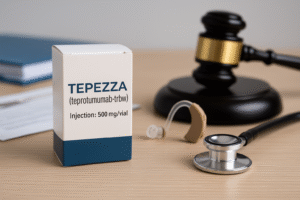Yangon, Myanmar — The lawsuit against Dr. Aung Zaw has captured national attention. The case has become a major topic in political and medical circles. Authorities accuse him of authorizing a $650,000 purchase of IV fluids from Ayeyarwaddy Pharmaceutical Trading. The company had no proven record in government contracts. Investigators say the fluids failed basic sterility and safety tests.
The Anti-Corruption Commission filed charges under Article 56 of the Anti-Corruption Law. Officials claim Dr. Zaw abused his authority and ignored tender rules. Supporters argue he acted to prevent a shortage of life-saving supplies. Critics say the law must apply even in times of crisis.
The case now tests Myanmar’s legal system. It also raises urgent questions about trust in the country’s fragile healthcare sector.
Corruption Allegations
The Anti-Corruption Commission (ACC) says Dr. Zaw approved the deal with Ayeyarwaddy Pharmaceutical Trading. Investigators report that the fluids failed sterility and safety standards. The company had no history of large government contracts.
The charges cite Article 56 of the Anti-Corruption Law and the Public Procurement Act of 2019. Both require transparent bidding and ban abuse of state funds.
Defense Cites Emergency
Dr. Zaw’s defense claims the deal was an emergency move. Hospitals faced a severe shortage after the 2021 coup and pandemic supply breakdowns. Internal memos called the procurement a “health supply emergency.” Supporters argue he acted to protect patients, not himself.
Timeline of the Case
-
September 2023 – ACC launched investigation.
-
September 12, 2023 – Dr. Zaw removed from office and placed under remand.
-
October 2023 – January 2024 – Hearings delayed over missing records.
-
February 2024 – Charges reinstated.
-
April 2024 – Leaked memos revealed ministry pressure.
-
June 2025 – Court hearings continue.
No Evidence of Enrichment
Investigators found no proof of personal gain. The case centers on procedure, not profit. The prosecution argues that bypassing rules damaged public trust.
Public Divides
Staff members said he acted to protect patients during a severe shortage. They argued his choices placed public health above politics. Civil groups hold the opposite view. Activists said no emergency can excuse violations of law.
The Myanmar Medical Association also spoke out. Leaders called for tougher emergency rules and demanded independent audits of procurement contracts. They said the lawsuit exposed major gaps in the system. The public debate shows deep division. Some citizens want strict accountability. Others believe flexibility is vital during crisis. The court must now decide how to balance law, urgency, and trust.
Broader Context
Online searches for “Aung Kyaw Zaw MD lawsuit” often lead to articles about medical malpractice. Malpractice usually involves patient harm from errors in care. The Myanmar case is different. It deals with procurement and emergency authority, not misdiagnosis or surgical mistakes.
Regional Parallels
Southeast Asia has faced similar scandals during health crises. Malaysia reported a PPE price scandal in 2021. Officials faced criticism over inflated contracts and weak oversight. Indonesia faced a ventilator supply dispute in 2022.
Hospitals received unsafe machines that threatened patient safety. The Philippines faced criticism in 2020 over costly test kits. Lawmakers accused officials of wasting funds through hasty deals.
These cases show a repeated pattern. Governments acted under pressure and ignored legal safeguards. Public trust collapsed in each instance. Myanmar now faces the same test as the court decides the fate of Dr. Aung Zaw.
What Comes Next
Courts in Yangon continue to hear new testimony. Judges review procurement records, leaked memos, and audit reports. The trial has dragged on for months and may continue into next year. A conviction could bring up to ten years in prison.
Key Takeaway
The Aung Zaw MD lawsuit has grown far beyond one man’s trial. The case has turned into a test of Myanmar’s fight against corruption and its ability to protect public health. Courts must decide if emergency actions can excuse violations of procurement law.
The ruling will show if the country can enforce accountability in times of crisis. The outcome also carries weight for doctors, officials, and patients. A conviction could send a strong message that no emergency can justify breaking the law. An acquittal could signal that urgent health needs may outweigh strict procedures.
Either decision will set a precedent. Myanmar’s leaders face a choice.Myanmar can regain trust with transparency and reform, or it can face deeper mistrust in its institutions and health system.The verdict will define how Myanmar confronts corruption, manages health supplies, and rebuilds public trust.
Muhammad Suleman Ahmad is a content writer covering lawsuits, legal explainers, and court-related topics for LawsuitDeck.com. His work is structured for clarity and general understanding.




